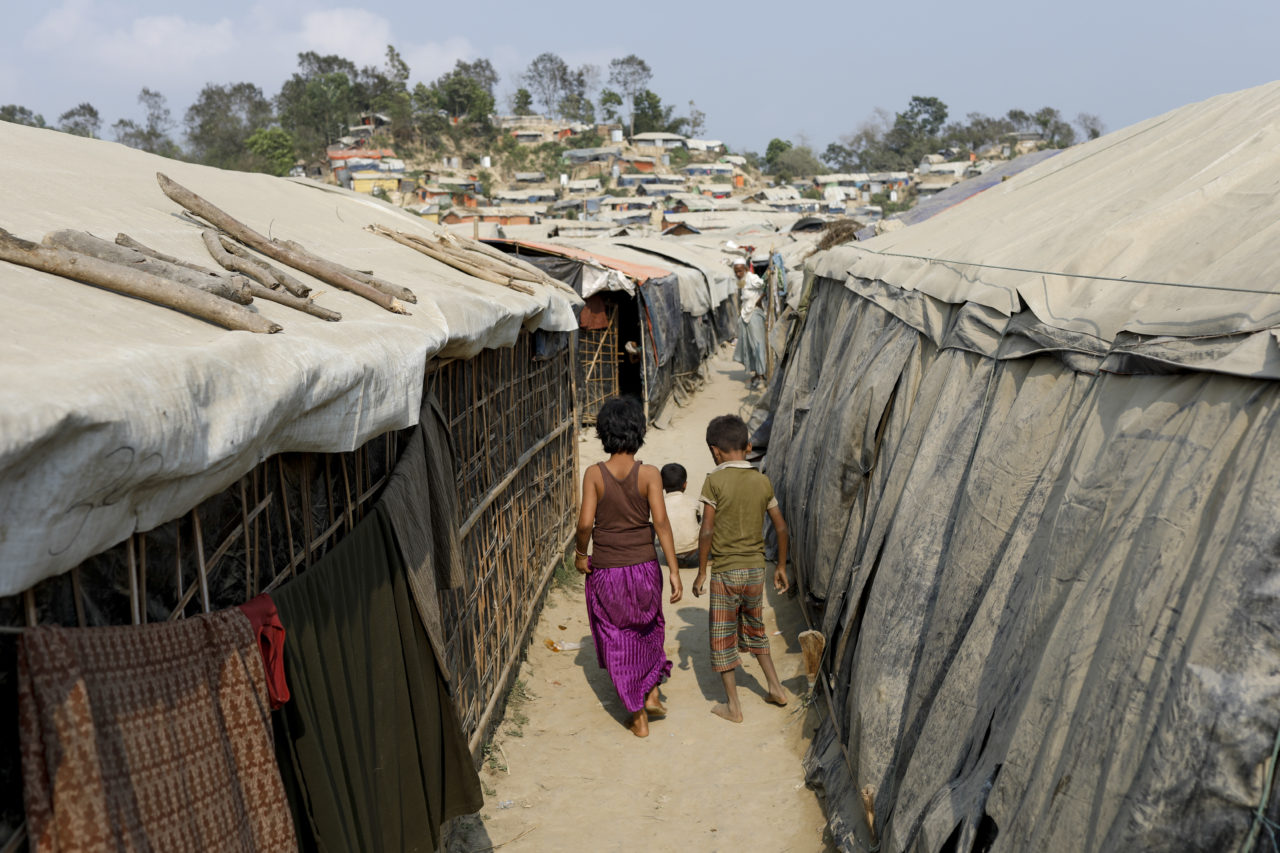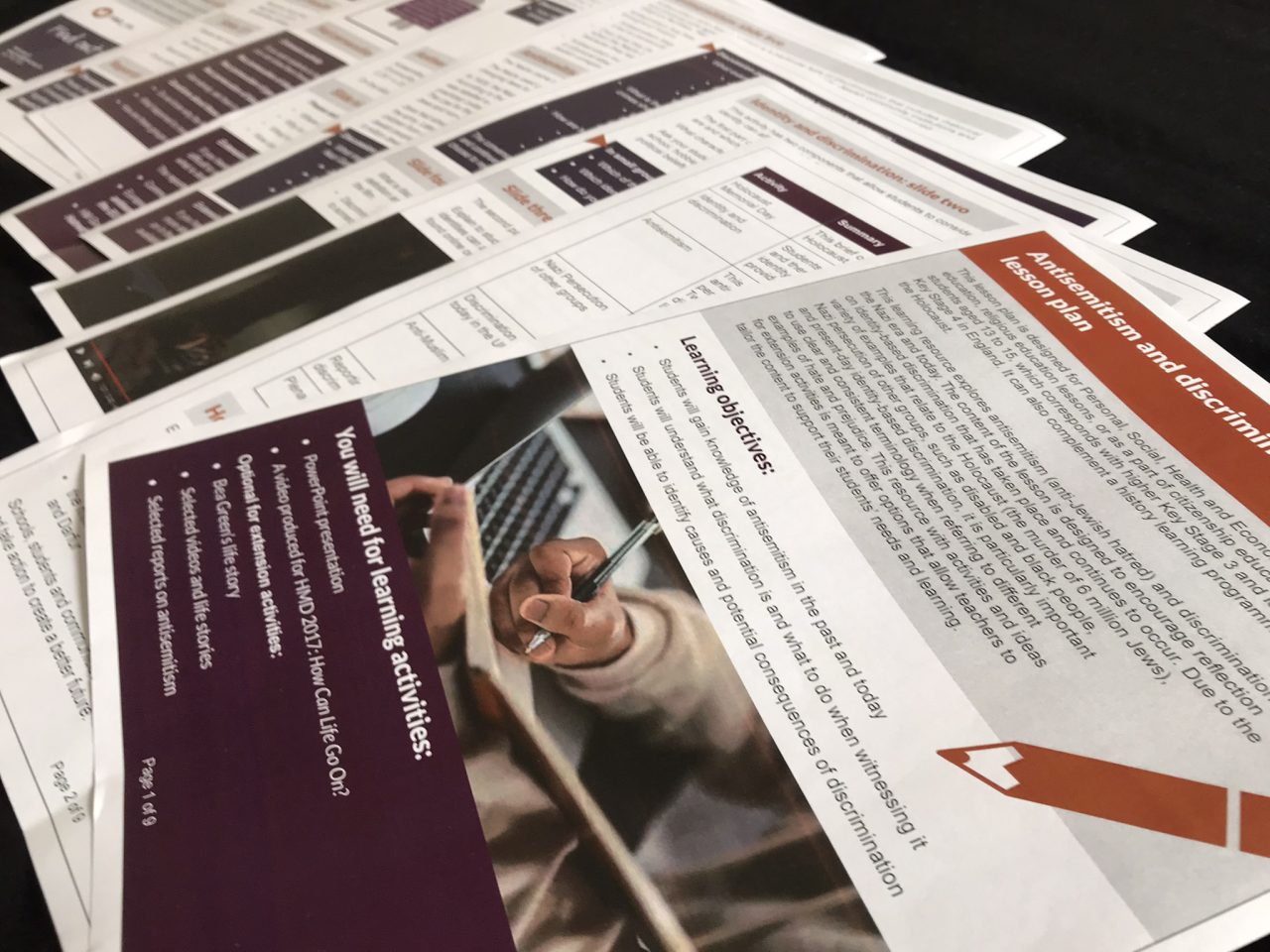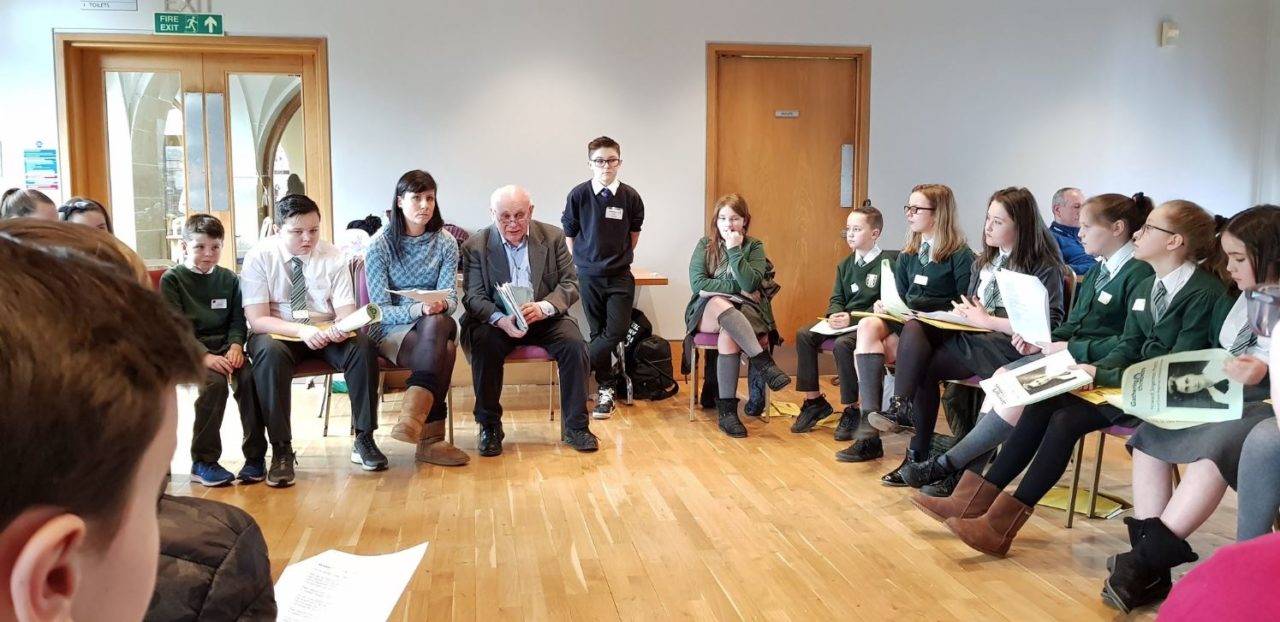Holocaust Memorial Day 2025 Guidance for activity organisers in the context of war in Israel and Gaza
This document has been produced by the Holocaust Memorial Day Trust (HMDT) to provide guidance, help and support to Holocaust Memorial Day (HMD) activity organisers ahead of HMD 2025. This year marks the 80th anniversary of the liberation of Auschwitz-Birkenau, the largest Nazi concentration camp complex, and the 30th anniversary of the genocide in Bosnia. The ongoing war in Israel and Gaza, and the ferocity of violence and displacement in Sudan, highlight the continued need for vigilance, education and commemoration.

HMD is a time for bringing communities together in collective remembrance of the millions of people persecuted and killed for who they were, and in so doing, to learn the lessons of the past and stand up to hatred, bigotry and racism wherever we find it today. At a time of heightened tensions and communal division in the UK as a result of the war in Israel and Gaza, bringing communities together in recognition of our common humanity is more important than ever and HMD activity organisers all across the UK play a vital role in making this happen.
HMDT is the charity established and primarily funded by the UK Government to promote and support HMD in the UK, as the UK’s national day to commemorate the 6 million Jews murdered during the Holocaust, and millions more people murdered through the Nazi persecution of other groups. We also mark the more recent genocides recognised by the UK government, as well as the genocide in Darfur. HMDT is here to help HMD activity organisers and the guidance below has been created as a result of questions, feedback and queries we have received from HMD activity organisers across the country.
Frequently Asked Questions
Organising an HMD activity
Q. Is marking HMD a political statement?
No. HMD is a time to remember the 6 million Jews murdered during the Holocaust, and millions more people murdered through the Nazi persecution of other groups. We also mark the more recent genocides recognised by the UK government, as well as the genocide in Darfur. HMDT has never made decisions on which of the sadly many terrible atrocities unfolding in the world constitute genocide. It is a time for communities to come together in remembrance and to learn the lessons from the past to build a better future together. HMD is not and has never been political, nor is it intended to demonstrate support or otherwise for any of the parties involved in the war in Israel and Gaza or any other conflict. It is a day for everyone, a day when we remember all those millions of people murdered because of something that made them who they were – for example their ethnicity or faith.
Q. The organisation I work for/ represent is very supportive of one side in the war in Israel and Gaza, can we still mark HMD?
As highlighted above HMD is not political and is about bringing communities together to remember the 6 million Jews murdered during the Holocaust, and millions more people murdered through the Nazi persecution of other groups. We also mark the more recent genocides recognised by the UK government, as well as the genocide in Darfur. At a time of division, remembering our common humanity is more important than ever. People will have different views about the war in Israel and Gaza, as with other conflicts around the world, but whatever those differences may be, marking HMD is a chance to set them aside and come together in remembrance of those that were murdered simply because of who they were. For this reason, HMDT does not think it would be appropriate for an event which marks HMD to be explicitly linked to an event designed to support one side or the other in the current conflict.
Q. Can you offer advice on planning security for HMD activities?
Security requirements for any HMD activity or event are very much situation and location dependent. The level of security your event or activity may require will depend on several factors:
- Who can attend your activity or event (whether in person or online) – is the activity or event by invitation only or open and advertised to the public? One way of improving security is to not release details of the location or link to an online activity or event earlier than 24 hours beforehand, thereby maintaining the security of its location.
- Is your activity or event taking place in a contained or secure space, e.g. activities taking place within an office or school? These are generally much more secure than those in a public space such as a shopping centre or a park where people can come and go.
- Who is coming to your activity or event, e.g. if you have high-profile guests such as politicians, faith leaders or other officials then it may be necessary to provide extra security.
Holding an HMD event in a public place or making it open for anyone to attend makes it easier for individuals and for communities to come together. However, such events inevitably pose greater security challenges than, e.g. closed events with a specifically invited audience.
If the activity or event is in a location where the public cannot come and go, and there are no high-profile individuals in attendance, the security presence you require will be low.
If your activity or event is open to the public, has been advertised widely, and there are expected to be high-profile individuals in attendance then the security you require will be high. In this instance we would strongly recommend that you discuss security for the event with your local police force at senior level as soon as possible.
If the event is taking place in person, this will enable the police to be proactive and discuss any other events taking place that could impact your activity or event e.g., if another large public event or if a protest is planned nearby. If you’re not sure who to contact within the local police, please contact CST who can assist you with identifying the right police force to contact.
If the event is taking place online, the police will discuss with you any risks around online security.
Q. Our HMD event is online – do we need to consider security?
Yes. Unfortunately, some online events have been targeted by people wishing to cause disruption or offence. Although this is a rare occurrence, we recommend reading the Community Security Trust’s Guidance for secure livestreaming, particularly if your event is public. Use passwords and consider registering attendees in advance to make your event more secure. Other points to consider are:
- Advanced registration for attendees and a waiting room option.
- Monitoring content from attendees in the ‘chat’ function. Delivering your event as a webinar, instead of an open meeting, can help mitigate risks concerning the chat function by providing a Q&A option regulated by the host.
- Muting all attendees.
We recommend you make sure someone on the organising team is responsible for monitoring online chat (if it is enabled) and online attendance (eg to monitor, mute and if necessary, remove an attendee).
If you are expecting a large or unregistered audience, then we recommend you discuss with the police or CST in advance to check any factors that might affect your event.
Q. We do not want to advertise our HMD activity or event; can we still add it to the HMDT activity map?
Yes. It is great to know what activities are taking place across the UK and we ask everyone to tell us the details of their event or activity by completing a short form at hmd.org.uk/letusknow, this is often referred to as the ‘HMDT activity map’. The online form helps us to gauge the impact of HMD across the UK and provides the option to mark your activity or event as public, private or unlisted. ‘Public’ and ‘private’ will appear on the activity map showing visitors to the page where activities/events are accessible to attend or not. Whereas ‘unlisted’ will not appear on the map and will only share details with HMDT.
Alternatively, you can tell us about your HMD activity or event by emailing us directly at [email protected].
Activity Content Questions
Q. Should I acknowledge the situation in Israel and Gaza in my HMD activity? And if so, how?
At the heart of HMD is the remembrance of the 6 million Jews murdered during the Holocaust, and millions more people murdered through the Nazi persecution of other groups. We also mark the more recent genocides recognised by the UK government, as well as the genocide in Darfur. Indeed, 2025 marks the 80th anniversary of the liberation of Auschwitz-Birkenau and 30 years since the genocide in Bosnia. The commemoration of these events should be at the heart of every HMD activity or event.
In previous years HMD activity organisers have on occasion referenced more recent examples of identity-based persecution, such as the Rohingyas in Myanmar and the Uyghurs in China. Any reference to more recent examples at HMD events and activities should be in addition to, and not a replacement for, remembrance of the Holocaust, Nazi persecution of other groups and the more recent genocides recognised by the UK government, as well as the genocide in Darfur.
In the UK, the impact of the war in Israel and Gaza is felt through an escalating wave of antisemitism (anti-Jewish hatred) and anti-Muslim sentiment, and the use of divisive and polarising language. Any reference to the conflict during HMD activities or events should therefore be considered with considerable sensitivity recognising the complexity of the situation and of the different views and opinions of individuals and communities attending the HMD activity or event.
Overall, it is very important to be clear that HMD is not a day for division or divisiveness. Rather, it is a day for people and communities to come together in remembrance of those who were murdered during the Holocaust, through Nazi persecution of other groups, and in more recent genocides currently recognised by the UK government, as well as the genocide in Darfur, and to remember our shared humanity. HMD activities therefore should be inclusive and respectful of all communities.
Q. We have had a speaker(s) withdraw from our HMD activity because of the situation in Israel and Gaza, what should we do?
Firstly, communicate with your speaker to identify the specific reason that has led to their withdrawal and ask whether there is anything you can do to reduce any concerns they have. There are likely to be two broad reasons why an individual may withdraw: disagreement with the content of the activity, or because they feel their personal safety is at risk if they attend your activity or event.
In the first scenario where there is a concern about the content of an activity, every effort should be made to highlight that HMD is for everyone and is not for any one community or group. Every HMD activity should be created with this in mind, however, if a speaker believes the event will not achieve the aim to bring communities together then it should be reviewed.
In the second scenario, having appropriate security or safety measures in place to reassure the individual or individual(s) concerned is key. One thing that can assist with this is, as stated above, discussing with your local police force your HMD activity or event. Activity or event security can come in many forms and the police, or the CST, will be able to talk you through what safety measures you may want to consider.
If there is nothing you can reasonably do or change to make the speaker’s attendance possible then you may want to contact HMDT for further support.
This is a living document and kept under review.
October 2024


